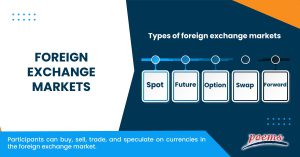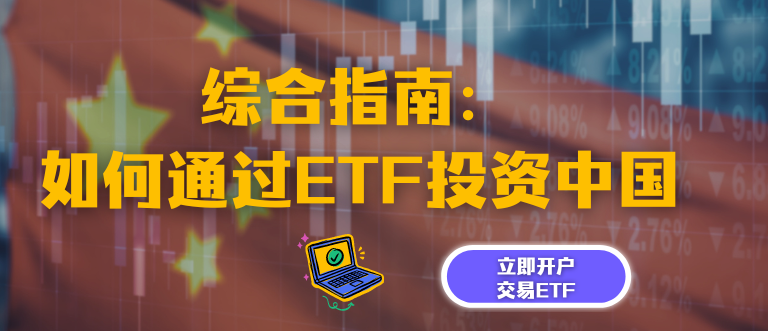Foreign exchange markets
Table of Contents
Foreign exchange markets
Every nation has its distinct currency for trade and commerce. The inflexibility of the currencies makes them an obstacle to international trade. The foreign currency market (FX) was developed to address this issue. It is a specific market where the currency exchange rates are fixed. The global economy would suffer greatly without the foreign exchange market.
What is the foreign exchange market?
Participants can buy, sell, trade, and speculate on currencies in the foreign exchange market. Investment management businesses, banks, central banks, hedge funds, companies, investors, and retail forex brokers make up the foreign exchange markets.
Most market players comprise commercial banks, foreign exchange brokers, authorised dealers, and monetary authorities. Remember the global market, even though players may have their trading hubs. The trading centres communicate often and closely, and there are multiple markets where the participants can transact.
Understanding the foreign exchange market
The foreign exchange market, often known as the forex, FX, or currency markets, was one of the first financial markets to structure the developing global economy. In terms of trade volume, it is by far the biggest financial market in the world.
The forex market provides a venue for currency exchange for settlements of international trade and investments and permits trading, speculating, and exchanging of currencies. Each currency’s “worth” is predicated on the value of the other currency in the pair because currencies are always exchanged in pairs. It determines how much money countries A and B can buy from one other and vice versa.
Establishing this relationship (pricing) for the global markets is the main goal of the foreign exchange market. As a result, all other financial markets will have much-increased liquidity, which is essential for general stability.
Types of foreign exchange markets
The foreign exchange market comprises:
- The spot market
The quickest monetary transactions take place in this market. According to the current exchange rate, this foreign currency market offers prompt payment to both buyers and sellers. Almost one-third of all currency exchange occurs in the spot market, and trades there often settle in one or two days.
- The future markets
A lot of issues that are present in the forward markets have answers in the future markets. The forward markets and future markets operate according to the same principles.
- The option market
An option is a contract that permits an investor to purchase or sell an underlying item, such as a share, ETF, or even an index, at a predetermined price over a predetermined period. In this kind of market, “options” are bought and sold.
- The swap market
An example of a derivative contract is a swap, in which two parties trade the liabilities or cash flows from two financial instruments. The cash flows dependent on a principal amount are a common swap feature.
- The forward market
Two parties—two corporations, two people, or two government nodal agencies—are involved in the forward market. In this kind of market, parties have committed to transacting at a specified price and quantity at a later period.

Advantages and disadvantages of the foreign exchange market
The advantages of the foreign exchange market are:
Investors are not subjected to stringent standards or restrictions in other markets since there are fewer laws than in those other marketplaces.
- Central authorities or clearinghouses do not regulate the currency market.
- Most investors are not required to pay the standard commissions or fees that you would on another exchange.
- There is no cut-off time to engage in the market because it is open continuously. You can trade whenever you like.
- If you are concerned about risk and profit, you can enter and exit the market whenever you like, and you can buy as much currency as you can afford based on the balance in your account and the leverage guidelines set forth by your broker.
The disadvantages of the foreign exchange market are:
Although there are benefits to the unregulated market, there are risks as well because no meaningful regulation can guarantee risk-free transactions.
- Leverage can boost profits, but it can also cause huge losses. There are no set limitations on leverage, so investors risk losing a ton of money if their projects don’t work out.
- Appreciation is the only factor that influences FX transactions. As a result, compared to other assets, they provide lower residual returns, unlike bonds, which can yield returns through interest payments, and stocks, which can yield returns through dividends.
- A trader may suffer if the FX market is not transparent since they may not get the best price, have limited information, and have little influence over how their deals are filled.
History of the foreign exchange market
A foreign exchange market has existed in some capacity for 300 years. The only currency merchants during most of American history were multinational firms that conducted business worldwide.
To reduce their exposure to foreign currencies, they utilised the forex markets. The US dollar’s peg to the price of gold allowed them to do this. The foreign exchange market didn’t take off until 1973. President Nixon finally broke the link between the value of the dollar and the cost of an ounce of gold at that point. The so-called gold standard maintained the dollar’s value at a constant 1/35 ounce.
As Nixon ended the gold standard, the dollar’s value rapidly decreased. Someone invented the U.S. Dollar Index to provide them with a platform for trading. The market soon saw the entry of banks, hedge funds, and some speculative traders. They were more focused on pursuing profits than risk mitigation.
Frequently Asked Questions
The purchase and sale of currencies is the primary goal of the foreign exchange market. Although the forex market has numerous applications, its primary goal is to generate income by exchanging one currency for another. Forex traders can accomplish this by purchasing a currency at a discounted rate and then selling it at a premium.
The market’s principal functions are to make currency exchange easier, offer tools to control foreign exchange risk (such as a forward exchange), and let investors engage in profitable market speculation.
Corporations, governments, central banks, investment banks, commercial banks, hedge funds, retail brokers, investors, and tourists are among those that trade foreign exchange.
The two tiers into which operations are separated in the forex market structure are the interbank market and the over-the-counter (OTC) market.
Foreign exchange interventions, commercial transactions, and activities like selling interest income from foreign reserve assets are foreign exchange operations.
Related Terms
- Market maker
- Options expiry
- Payment Date
- Treasury Stock Method
- Reverse stock splits
- Ticker
- Restricted strict unit
- Gordon growth model
- Stock quotes
- Shadow Stock
- Margin stock
- Dedicated Capital
- Whisper stock
- Voting Stock
- Deal Stock
- Market maker
- Options expiry
- Payment Date
- Treasury Stock Method
- Reverse stock splits
- Ticker
- Restricted strict unit
- Gordon growth model
- Stock quotes
- Shadow Stock
- Margin stock
- Dedicated Capital
- Whisper stock
- Voting Stock
- Deal Stock
- Microcap stock
- Capital Surplus
- Multi-bagger Stocks
- Shopped stock
- Secondary stocks
- Screen stocks
- Quarter stock
- Orphan stock
- One-decision stock
- Repurchase of stock
- Stock market crash
- Half stock
- Stock options
- Stock split
- Stock Market
- FAANG stocks
- Unborrowable stock
- Joint-stock company
- Over-the-counter stocks
- Watered stock
- Zero-dividend preferred stock
- Bid price
- Authorised shares
- Auction markets
- Market capitalisation
- Arbitrage
- Market capitalisation rate
- Garbatrage
- Autoregressive
- Stockholder
- Penny stock
- Noncyclical Stocks
- Hybrid Stocks
- Large Cap Stocks
- Mid Cap Stocks
- Common Stock
- Preferred Stock
- Small Cap Stocks
- Earnings Per Share (EPS)
- Diluted Earnings Per Share
- Dividend Yield
- Cyclical Stock
- Blue Chip Stocks
- Averaging Down
Most Popular Terms
Other Terms
- Direct market access
- Deficit interest
- Strong order book
- Economic calendar
- EPS forecast
- Fiat money
- Adjusted distributed income
- International securities exchanges
- Settlement currency
- Federal funds rate
- Active Tranche
- Convertible Securities
- Synthetic ETF
- Physical ETF
- Initial Public Offering
- Buyback
- Secondary Sharing
- Bookrunner
- Notional amount
- Negative convexity
- Jumbo pools
- Inverse floater
- Forward Swap
- Underwriting risk
- Reinvestment risk
- Final Maturity Date
- Secondary Market
- Margin Requirement
- Mark-to-market
- Pledged Asset
- Yield Pickup
- Subordinated Debt
- Trailing Stops
- Stochastic Oscillator
- Bullet Bonds
- Basket Trade
- Contrarian Strategy
- Exchange Control
- Notional Value
- Relevant Cost
- Dow Theory
- Speculation
- Stub
- Trading Volume
- Going Long
- Pink sheet stocks
- Rand cost averaging
- Sustainable investment
- Stop-limit sell order
- Economic Bubble
Know More about
Tools/Educational Resources
Markets Offered by POEMS
Read the Latest Market Journal

继前一篇我们介绍了越南市场后,接下来我们将介绍泰国市场,泰国的表现一样引人瞩目。 受结构性问题影响,相较于菲律宾、马来西亚、印度尼西亚和越南,2023年,泰国全年GDP增幅远低于其他国家。泰国2023年GDP同比2022年增长1.9%,低于市场预测的2.5%。 2023年,中国-东盟自贸协定零关税给泰国带来了直接且沉痛的打击。由于消费疲软、贸易壁垒等政策影响,产能过剩,导致大量低价进口中国商品涌入,使得2023年泰国与东盟9国的总贸易额出现了3年来的首次下滑,其总贸易额为4万亿泰铢(约1489亿新元)。由于巨大的成本价格差异,其中泰贸易逆差扩大至1.29万亿泰铢(约480亿新元)。其中,小家电、蔬果、箱包和服装行业处境最为艰难。 尽管如此,旅游业的复苏增长带动了非农业产业的增长。政府数据显示,2023年来访泰国的总人数达3.15亿人次,较去年增长40.3%。其中,国际游客超过2800万人次,马来西亚和中国为最大客源。随着泰国对中国和哈萨克斯坦实施免签政策和其他活动措施,预计2024年将带来更多游客,推动泰国旅游业的复苏进程,并力争实现2024年旅游营业收入达到3.5亿泰铢(约0.12亿新元)的目标。 热销股票 1. ADVANCED INFO SERVICE PUBLIC CO., AIS,AIS通信(ADVANC.TH) AIS通信是泰国的最大移动运营商,主要经营三大业务线,包括移动业务、AIS Fibre品牌下的高速家庭宽带业务,以及企业业务。同时AIS也提供多样化的数字生活服务。AIS通过数字智能基础设施、跨行业合作和人力资本与可持续发展这三方面,致力于“成为泰国最受尊敬的认知科技公司”的愿景。 (来源:AIS2023财年年报)...

指数差价合约是区别于投资个股、指数期货或交易所交易基金(ETF)的一种热门替代品,因为该工具允许您获得特定指数的风险投资组合,并从柜台价格走势中获益,无论做多或做空。此外,由于差价合约的杠杆特性,交易者只需拿出合约价值的一小部分作为初始合约的抵押品即可启动一笔合约。这样,交易者就可以方便快捷地进行整个市场的交易。 本期重点摘要: 股票指数只是一组资产的集合,它概括了股市中某一行业板块的表现。许多此类指数根据不同的标准包含和/或排除某些股票。 指数差价合约有助于利用构成单一指数的各种股票分散您的投资组合、实现投资组合多样化。这也有助于避免 “选择悖论”:指数帮助您决定投资哪些股票。 最重要的是,指数差价合约让交易者获得对指数的接触,而不用购买组成指数的个股。这种具有成本效益的策略让您只需交易指数的价格变化,而无需拥有相关指数本身。 什么是股票指数? 当人们说 “今天市场上涨了 “或 “市场下跌了 “时,你会不会好奇,分析师是如何评估整个市场? 这很简单,他们只需分别将按照今天的报价和昨天的报价购买所有公司所需的金额相加。两相比较下,如果发现今天的数字大于前一天的数字,那么我们就知道今天的市场上涨了,反之亦然。然而,数字的汇总和对比可能会很繁琐和麻烦。创建指数就是为了方便测量。 因此,”股票指数 “一词指的是一组股票(或其他资产)的集合,它提供了股票市场特定部分表现的概况。该指数被用作一个替代指标,用来衡量市场在特定时间段内的涨跌情况,比如以上例子中所描述的逐日指数。...

本文旨在为中级外汇交易者提供必要的信息和知识。它将涵盖我们上一篇文章 “五分钟看懂世界上最活跃的市场-外汇差价合约(FX CFD)...

解锁台湾股市的投资潜力!深入了解由强大的技术驱动型经济推动的股票市场,2023 年机械和电气设备将占出口的 69%。在政治稳定、投资者友好的法规和健全的法律框架下,探索台积电和富士康等全球顶级企业。台湾股市值得称赞的历史表现和在国际贸易中的的重要性使其更具吸引力。在这个科技实力雄厚、经济稳定、充满活力的股票市场中,抓住增长机遇!

了解外汇市场 外汇交易市场又称外汇市场,是一个买卖货币的全球性金融市场。它是全世界规模最大、流动性最强的金融市场,每日交易量超过 6 万亿美元。但外汇市场有一个重要却常被忽视的一点,就是它受交易心理的影响。在本文中,我们将探讨外汇市场的复杂性,还有把重点放在交易心理与传统交易策略共同发挥的关键作用...

五分钟看懂世界上最活跃的市场 -外汇差价合约(FX CFD)
外汇交易市场俗称外汇或外汇市场,是全球金融市场的支柱。它是世界上最活跃的市场,2022 年 4 月,全球交易额达到创纪录的每天 7.5 万亿美元[1] 。这个活跃的市场为交易者提供了利用货币价格波动赚取利润的机会。在本文中,我们将解释外汇市场的基本原理,助您了解其投资机制。 什么是外汇? 外汇市场是一个分散的全球市场,世界上所有货币都在这里进行交易...






















